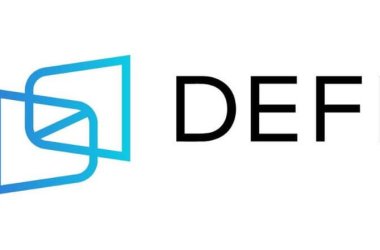
The UAE’s 344% surge in GenAI course enrollments signals more than a trend—it marks a turning point in how nations prepare for an AI-first future. At the forefront of this shift is Coursera, whose data-driven approach to talent development is helping enterprises, governments, and individuals build future-ready capabilities at scale.
In this exclusive interview, Kais Zribi, General Manager for the Middle East and Africa at Coursera, spoke to Sandhya D’Mello, Technology Editor, CPI Media Group, shedding light on the evolving skilling landscape, the UAE’s leadership in AI maturity, and the steps being taken to bridge gender gaps in emerging tech sectors.
Interview Excerpts:
How do you see the UAE’s remarkable 344% growth in GenAI enrollments shaping enterprise workforce strategies across the region? Are similar trends emerging in other key markets?
The UAE’s 344% growth in GenAI enrollments reflects a profound shift in how enterprises across the region are preparing their workforces for the future. This surge signals that AI fluency is no longer optional, it’s essential for innovation, competitiveness, and long-term resilience.
Employers are rethinking talent development strategies by embedding AI and GenAI skills into upskilling roadmaps and treating them as foundational capabilities. This aligns closely with digital transformation agendas, as governments invest in human capital to power AI-driven economies.
Similar trends are emerging across the region. In Saudi Arabia and Qatar, GenAI enrollments have grown by 165% and 194% respectively, supported by bold national AI strategies and talent development initiatives.
“Organisations are accelerating investments in job-relevant, scalable learning to address urgent talent gaps and build agile, innovation-ready teams.”
Globally, GenAI is Coursera’s fastest-growing skill category. In 2025 alone, over 12 learners enroll in GenAI courses every minute, and we now offer nearly 700 courses. By delivering high-quality, localised content at scale, Coursera is helping enterprises across the UAE and the broader region upskill rapidly and stay ahead of technological disruption.
What role do Coursera’s enterprise partnerships play in helping businesses close skill gaps and build future-ready talent pipelines?
Coursera’s enterprise partnerships are helping organisations across the UAE respond to surging demand for AI, data, and tech skills. As the majority of employers prioritise these capabilities, the need for targeted, scalable upskilling has become critical. Through flexible, curated learning pathways, supported by localised content and AI-powered tools, Coursera enables public and private sector organisations to accelerate talent development and prepare their workforces for the AI era.
Our Global Skills Report shows that more than 13% of the UAE’s labor force is actively learning on Coursera, highlighting strong digital engagement. Globally, 94% of employers say they’re more likely to hire candidates with GenAI credentials, underscoring the growing demand for skills that Coursera’s enterprise solutions are designed to deliver. This aligns with what we see in the UAE, where employers increasingly value industry-aligned credentials that demonstrate job-readiness in key fields.
Our partnerships extend beyond content delivery. Coursera works closely with enterprises to design upskilling programs aligned to business goals, from accelerating AI adoption to building data-literate teams. Coursera’s platform enables organisations to build structured, job-relevant learning programs that support continuous upskilling, track progress at scale, and help retain talent. By equipping teams with in-demand skills, businesses can respond more effectively to disruption, remain competitive, and strengthen internal mobility.
What lessons can other countries in the region learn from the UAE’s approach to scaling AI learning and infrastructure?
The UAE’s top ranking on Coursera’s AI Maturity Index highlights a holistic and forward-looking strategy that offers a blueprint for other countries in the region. The country’s approach combines investments in infrastructure, education, and regulatory agility. From mandating AI education in public schools to launching initiatives like the 5GW AI Campus, the UAE is embedding AI learning across all levels, creating a steady pipeline of talent ready to lead in an AI-first world. At the same time, the UAE fosters a vibrant ecosystem, attracting global capital such as the US$100 billion MGX fund, and advancing public-private collaboration. Agile governance and progressive regulation support responsible progress and accelerate AI adoption.
Other countries can draw on these lessons: align education with national strategies, mobilise investment in tech infrastructure, and establish inclusive, visionary policies that enable both access and innovation. The UAE’s success illustrates how coordinated action between government, industry, and higher education institutions can drive meaningful progress. At Coursera, we believe that such multi-stakeholder collaboration is essential to delivering high-quality learning that equips citizens for the jobs of tomorrow. By prioritising human capital development alongside technological infrastructure, countries can accelerate their journey toward a competitive, inclusive digital economy.
How is Coursera working with enterprises and governments to advance women’s participation in AI and STEM across the region?
While the UAE has made strong progress in digital transformation, Coursera’s Global Skills Report highlights persistent gender gaps in emerging tech fields. While women account for 32% of Coursera learners in the UAE, only 24% of them are enrolled in STEM and 21% in GenAI courses.
“Regionally, women make up 35% of learners across MENA, but just 31% of them are in STEM and 24% in GenAI, signaling a clear need for more inclusive access.”
To help address this, Coursera is working closely with public and private sector partners to expand women’s participation in AI and STEM. Beyond scalable learning, we’re also convening ecosystem players across the region to tackle structural barriers and surface shared solutions, including through initiatives like the Coursera Women Leadership Summit MEA, which brings together regional stakeholders, global educators like Dr. Barbara Oakley, and prominent female leaders to spotlight pathways for women in emerging tech.
Building on these efforts, our research, highlighted in the Closing the Gender Gap in GenAI Skills playbook, identifies key barriers such as time constraints and perceptions around career relevance that continue to limit women’s engagement. We’re responding with flexible, self-paced learning, modular content, and AI-powered coaching to support diverse learning needs. Overcoming these challenges also requires tailored messaging, clear career pathways, and equitable learning environments. That’s why we’re working with governments, universities, and industry partners to expand access to GenAI content and professional certificates, and to showcase how these skills translate into meaningful careers.
Our interdisciplinary GenAI courses highlight real-world applications across sectors, helping shift perceptions and boost engagement among women. Industry micro-credentials offer more accessible, affordable routes to job readiness, allowing women to demonstrate their skills and remain competitive in a rapidly evolving workforce. By embedding equity into course design, showcasing diverse role models, and leveraging strategic partnerships, we aim to make tech careers more accessible and aspirational for women. Increasing women’s participation in tech not only drives equity but also unlocks new perspectives and innovation, fueling a more inclusive digital future.





